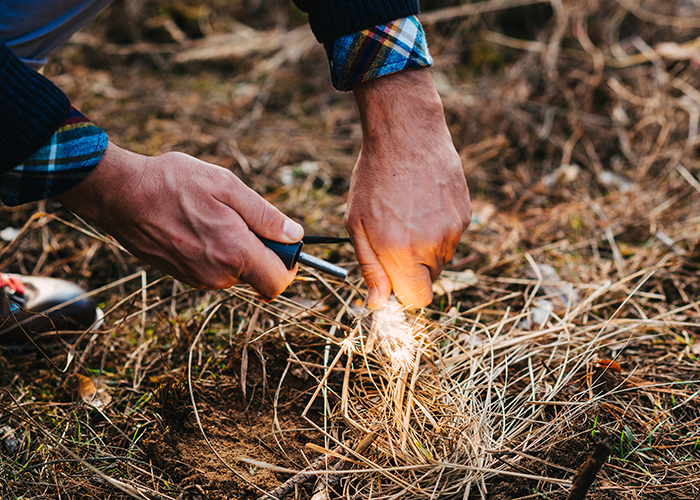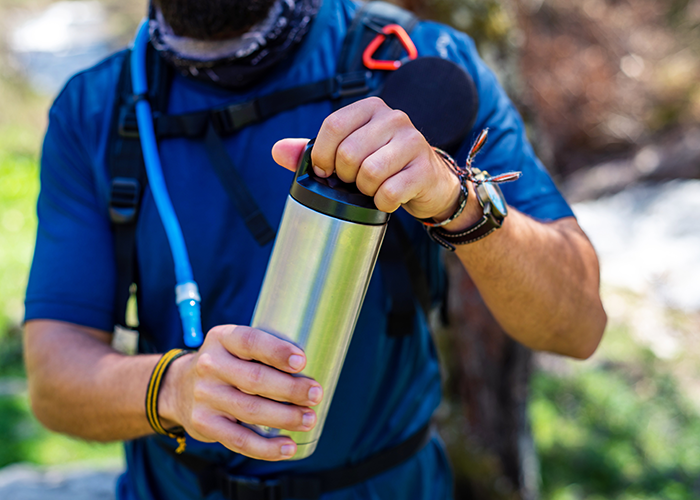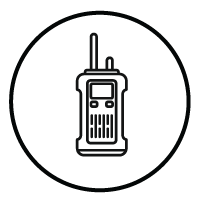Current Hazard Warnings 09/10/20- Fire Danger, No Fire within city limits.
going for an adventure?
Make sure you are prepared! Whether you are going on the river, hiking, biking, or recreating outdoors, it’s important to be prepared. Weather can change rapidly and accidents can happen.
LOST?
HIKING
RIVER
WINTER
DISASTERS
If You Think You Are Lost...
- STAY PUT and call for help! It's a lot easier for Mesa County Search and Rescue to find you if you are in one place!
- DON’T PANIC!!
- Use the last hour of the day preparing a shelter
- Build a fire
- Never separate from each other!
- If you must move, travel down a drainage
- Help will come, believe it!!
- Always be prepared to spend the night!!…..

hiking safety
for the safety of our community
- Plan your route ahead of time, and make sure someone not in your hiking party knows your plan and expected time of return.
- Take and drink plenty of water, especially during hot days.
- You can't always depend on your cell phone! It may run out of battery or you may find yourself in an area with no cell or GPS coverage.
- Check the weather and dress for it!
- Learn more about hiking safety here.
- Remember to take your CORSAR card! If you ever need Search and Rescue it helps us pay for the cost! Click here to get yours today!

planning a river trip?
River levels and conditions change daily. Check for current conditions before you make plans to enjoy the river.
Hazards During High Water
- Swift water, dangerous currents: Not all hazards can be seen from the surface, even gentle stretches of water can have dangerous undercurrents.
- Debris and Tree snags: It’s creating dangerous undercurrents that can trap you underwater. Debris can also puncture rafts.
- Cold Water Temperatures: Hypothermia is a very real concern. Water will be colder the deeper the River gets, creating a potentially deadly situation for even the strongest of swimmers.
- Unstable Riverbanks: Ground can erode underneath, and breakaway without warning. If you’re standing on it, you can get swept away.
- Don't Swim at Boat Ramps: Currents can quickly drag someone underwater or downstream.
- Conditions will change day by day: As the weather heats up or cools down, snow will melt at a different pace creating ever-changing river conditions.
- Parts of the Riverfront trail close during times of high water. CLICK HERE for more information and detour routes.
- Visit the Colorado Basin River Forecast Center for current water levels on Mesa County rivers.
Water Safety
- Always Wear a Life Jacket: Life jackets save lives! Even strong swimmers should wear one. Life jackets are available to borrow for free at many boat ramps thanks to the Save-A-Life Jacket Program.
- Use Proper Equipment: Using pool toys and inner tubes on the river are putting your life at risk. Use equipment designed for the river, sub-standard equipment will not protect you from river hazards.
- Enjoy the River Sober: Rafting impaired puts your life at risk.
- Raft in Groups: Raft with others, not alone. A preferred minimum is three boats. Let someone know where you are going and when you expect to return.
- Know your limits: Do not attempt a section of the river beyond your skill level.
- Pay attention to weather and water conditions: Dress for the water temperature. If the water temperature and air temperature combined total of 100 degrees or less wear protective clothing.
- Have an Emergency? Call 911: Search and Rescue services are free.
Winter Safety
- Know the forecast! Weather can change! Check it at National Weather Service
- Tell someone where you are going and when you plan to return.
- Never go alone, and ALWAYS stay together!!!
- A map and compass! Cell phones will only work so far. - Global Positioning Satellite Receivers (GPS) are great, but they become useless once the batteries are dead. Never rely totally on this technology, when you go out in the backcountry ALWAYS take a map and compass with you and make sure you know how to use it!!
- Tools and spare equipment parts
- Extra clothing and “space” blanket
- A flashlight and first aid kit
- Nonperishable food and water
- An avalanche beacon and snow shovel
- Waterproof matches, lighter and a candle
- A whistle and pocket knife

Emergency Management
If you have an emergency, call 911.
Mesa County Emergency Management
MCEM works with partner agencies throughout Mesa County to prepare for disasters and emergencies. It is also important for individuals, families, and businesses to prepare for these events. The links below provide information to learn about emergency and disaster preparedness to protect yourself, your family, and your business:
Prepare Yourself: American Red Cross
American Red Cross: Colorado Wildfire Handbook
American Red Cross: Wildfire Checklist
American Red Cross: Wildfire Checklist – Spanish
American Red Cross: Preparing for Disaster for People with Disabilities and Other Special Needs
Colorado Ready Program
FEMA Ready Program
Prepare Your Kids
Prepare your Business
Mesa County's Multi-Jurisdictional Hazard Mitigation Plan
The public is invited to review the five-year review and update of Mesa County's Multi-Jurisdictional Hazard Mitigation Plan.
View Mesa County's Multi-Jurisdictional Hazard Mitigation Plan
The purpose of the Mesa County Hazard Mitigation Plan is to reduce or eliminate long-term risk to people and property from natural hazards. Mesa County originally completed its Hazard Mitigation Plan in 2005. The plan was subsequently updated in 2010 and 2015. This public comment period is to update the 2015 plan.
Thank you to those who took the Public Hazard Perception Survey. It helps to provide information to emergency planners to prepare for hazard reduction activities which may include more public outreach, risk reduction projects, and other actions intended to reduce the vulnerability to natural hazards in Mesa County. The information gathered from this survey will be included in the 2020 revision of Mesa County's Multi-Jurisdictional Hazard Mitigation Plan. Your time spent completing this short survey is appreciated.
It is important to know how to get information before, during, and after an emergency. Use the following resources to receive emergency information in Mesa County:
Emergency Alerts: Sign up with the Grand Junction Regional Communication Center to receive emergency messages from local public safety agencies via text or email.
211: Speak with live, trained professionals to obtain information about services and alerts during an emergency or disaster.
CoTrip.org: Travel alerts and road conditions provided by the Colorado Department of Transportation.
NOAA Weather Radio: A nationwide network of radio stations broadcasting continuous weather information directly from the nearest National Weather Service office. NWR broadcasts official weather warnings, watches, forecasts, and other hazard information 24 hours a day, 7 days a week.


